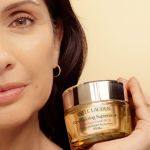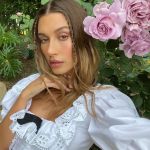
How the beauty industry supports the black community
Many brands work on a daily basis to fight racism and discrimination
June 19th, 2020
In the last couple of weeks, following the death of George Floyd, from the USA (reaching the whole world, including Milan) a chain reaction of protests and revolts against racism started, but also fundraising and donations to those associations that support the #blacklivesmatter movement.
The brands of the beauty industry have shown commitment and dedication in supporting the cause through social networks, but also with donations or charity initiatives to support smaller, independent and black-owned companies.
A question therefore arises spontaneously: how many brands, in addition to demonstrating emotional involvement on social networks, do really commit every day to be inclusive towards all ethnic groups?
The evolution of make-up
So far, especially in the western world, there are very few shades of foundation or concealer dark enough for the skin of black people. In this regard, Bobbi Brown, the famous make-up artist and founder of the homonymous brand, expressed her opinion.
When my brand was founded, foundations looked artificial and there were very few shades available on the market. It was my mission to create products that could match the color of every woman's skin. Now, many other companies are working on products for women of all ethnicities and age groups. I am optimistic and I think this will be the future of beauty.
Only in the 90s, in fact, brands like MAC Cosmetics, NARS Cosmetics and Bobbi Brown began to expand their range of concealers and foundation shades. In 1994 supermodel Iman founded her own beauty brand IMAN Cosmetics, Skincare & Fragrances, designed primarily for black women. Another step was taken a few years later by the well-known American cosmetic brand CoverGirl, that gave voice to beauties such as Tyra Banks and Queen Latifah, with whom in 2006 the brand created the Queen Collection suitable for darker skin tones.
More recently, in September 2017, a real revolution came with Fenty Beauty, Rihanna's brand, born with the intention to offer the correct nuance of foundation to all the skin colors, even the darkest. Needless to say, the brand immediately became an icon and a reference point for change, with its incredible range of over 50 shades of foundation. Another absolute game-changer in the beauty world is the make-up artist of celebrities and models Pat McGrath: from the launch of her collection Pat McGrath Labs, to the partnership with her muse and friend Naomi Campbell, Pat has always been a proud representative of the black beauty.
Today even more popular and accessible brands such as NYX, Kiko Milano, Too Faced, Make Up For Ever, are implementing their product lines in order to satisfy all needs.
Certainly many small steps towards inclusion in the beauty industry were taken and are taken every day, but experts believe it is necessary to do much more.
In the US, a recent study found out that black women spend nine times more on beauty and haircare than white women.
And it's not just about brands. Tym Buacharern, make-up artist who worked on the backstage of the movies "Black Panther", "Dreamgirls" and for the "Hunger Games" series, criticized the beauty schools, that do not teach their students how to work with all the shades of the skin and kind of hair.
Not only make-up
In terms of hair care, the absolute pioneer was Madam CJ Walker, who in 1905 committed herself to making products designed for the dilemmas that she and other black women were facing, like dandruff and hair loss. The Netflix series Self Made offers a glimpse into how Walker became the first black American woman to be a self-made millionaire, starting from scratch. She also invented the first hot comb and product with straightening formula for black hair, something controversial at the time.
Later, many models have sided against what is considered real discrimination: on one hand, against the lack of product for the needs of black hair, on the other hand against the beauty stereotypes of the time.
Just think of the South-Sudanese supermodel Alek Wek, that during a Betsey Johnson fashion show in 1998, threw off the blonde wig she was wearing, with an impulsive and bold gesture against the discriminatory stereotypes of beauty of the time.
These episodes happened (and still happen) too often. Another model, Selena Forrest, has took a position about this issue, denouncing how many hairstylists do not know how to treat afro hair, mentioning some of them was using the hair straightener at 400 degrees (literally!) to straighten curls in an unnatural way, rather than leaving them in their shape natural - and causing a huge damage.
Other protagonists of the beauty world expressed a very similar opinion on the issue of black women's hair, on how difficult it is to find suitable products, but also salons and hairstylists who know how to treat them with the right care and attention.
"I can barely find suitable hair products from mainstream hair brands, let alone finding ‘white’ salons or stylists to cater for my hair." - declared the beauty columnist Funmi Fetto.
"I don’t need special treatment from anyone. What I need is hairstylists to learn how to do black hair. I’m so tired of people avoiding doing my hair at shows. How dare you try to send me down the runway with a linty busted afro? We all know if you tried this on a white model, you’d be #canceled." - words of model Londone Myers.
These protests, in recent years, led to a return of natural hair. Above all natural afro hair, thanks also to celebrities such as Halle Barry, Solange Knowles, Yara Shahidi, Alicia Keys, who showed off beautiful natural curly hair.
If the situation is moving more easily in the United States, in Europe (and especially in Italy), it is still difficult to find products for black hair, as well as salons and professionals who know how to treat this type of hair - despite the efforts of the African-italian community, of Youtubers and influencers, and of brands like Nappy Italia.
Black-owned and independent beauty brands
Not just the industry leading brands. There are hundreds of independent, black-owned beauty brands that are revolutionizing the cosmetic industry. How? By creating a business model and a product that include or are made specifically for the needs of the black community.
How many of the beauty trends we see every day like braids, baby hair and wet look hair, very long and reconstructed nails, as well as urban looks, derive from black culture. How can we recognize and support the women (and men) who influence us on a daily basis, even if this is often not accepted? Getting to know the black-owned beauty brands can be a first step.
From the hair care products of Pattern Beauty and Briogeo, to the foundations of BlackUp, Cover FX and Range Beauty, to the sunscreen and creams of Blackgirlsunscreen, from the lipsticks of TheLipBar to the nail polishes of Mented Cosmetics.
Following the protests, recently the 15PercentPledge campaign has been launched, an appeal to large and small retailers to dedicate at least 15% of their shelf space / e-commerce to black-owned businesses. The leading giant of the beauty industry Sephora has just accepted the request and declared its commitment to activities and brands managed by the black community.
Make-up and beauty products are something extremely personal and intimate - perhaps even more than clothes - being something we literally feel on our skin. There is nothing that can make us feel more integrated and truly included than products designed especially for our skin - and everyone should have access to it.
















































